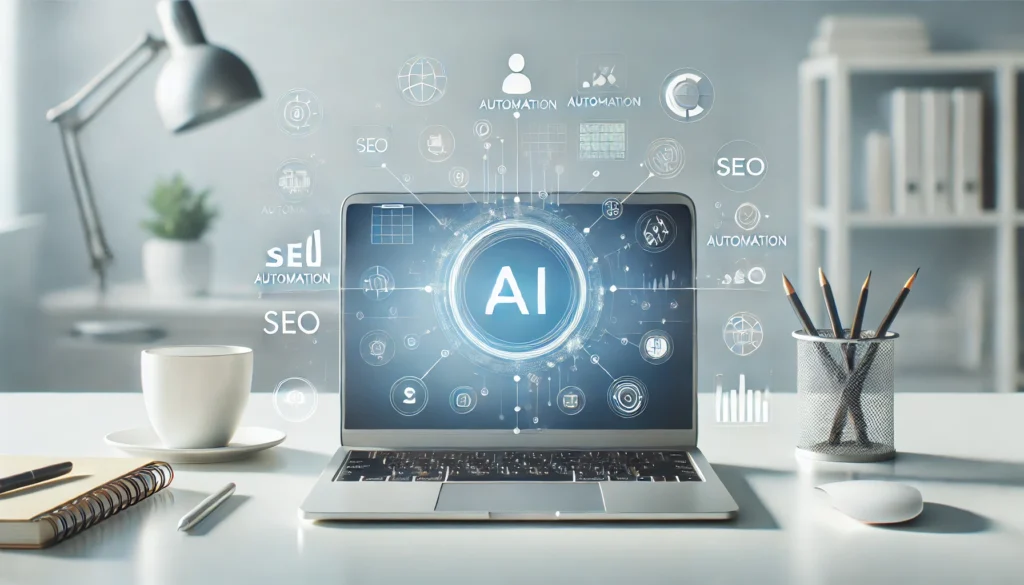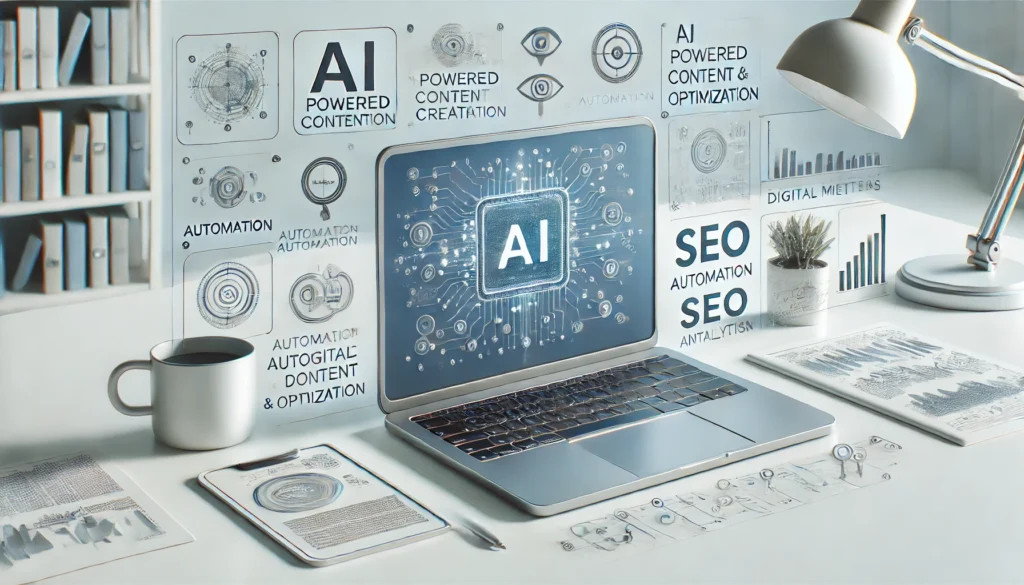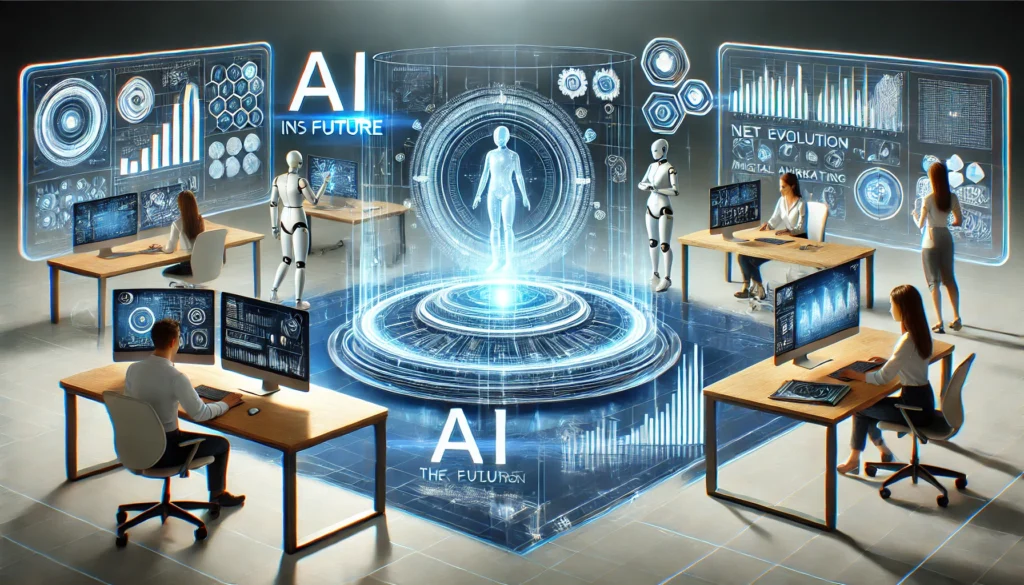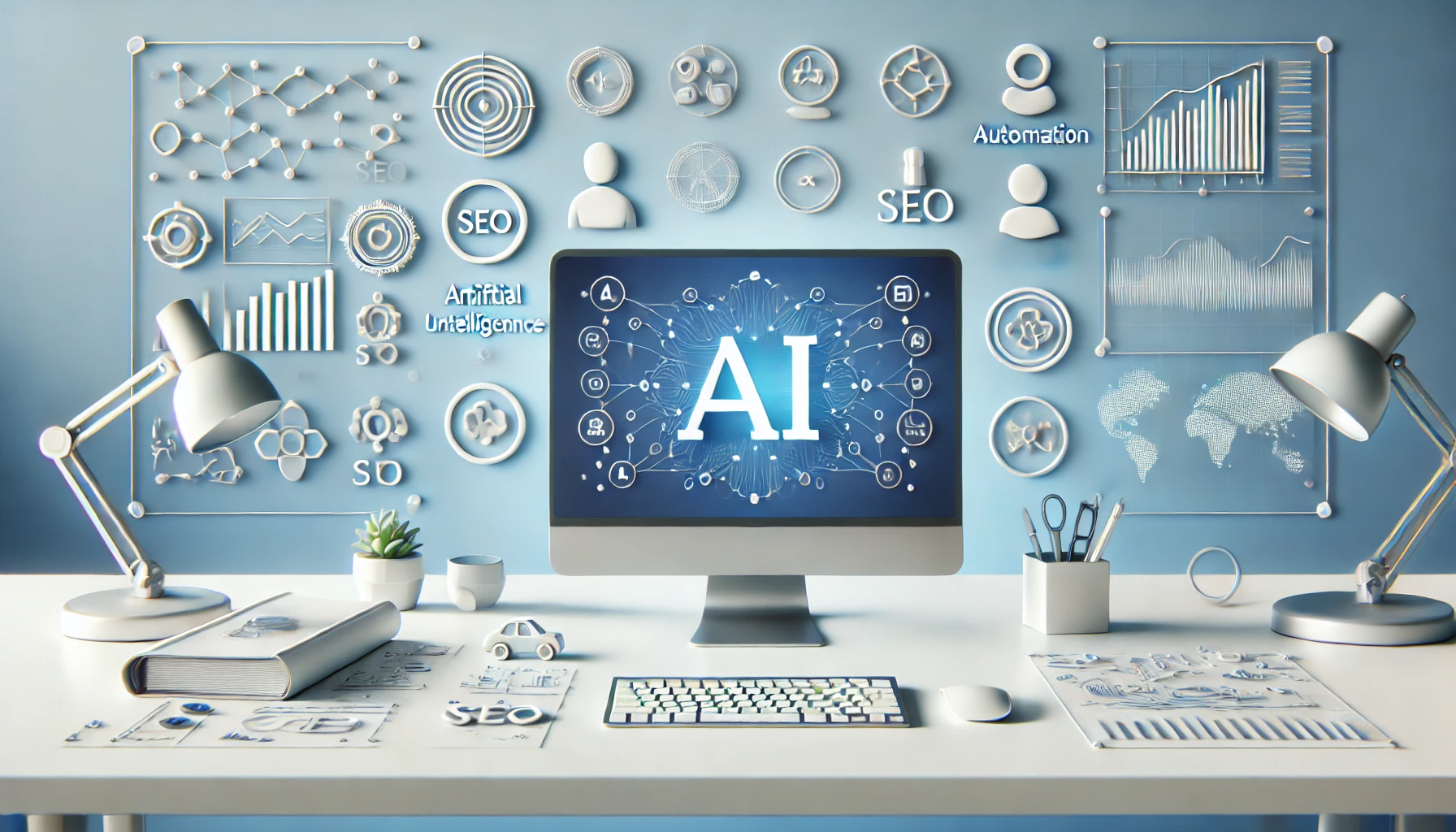Struggling to Keep Up with AI in Digital Marketing? You’re Not Alone.
Digital marketing is evolving at lightning speed, and marketing professionals everywhere are feeling the pressure. AI technology is revolutionizing everything, from content creation and customer engagement to predictive analytics and marketing strategy. But not everyone knows how to harness AI effectively.
For many businesses, the biggest challenge isn’t adopting AI, it’s knowing where to start. How do you integrate AI-powered marketing into your existing marketing campaigns? Will AI replace human creativity, or can it enhance it? And most importantly, how do you ensure AI tools align with your brand guidelines and customer expectations?
In this guide, we’ll break down the real-world impact of AI in digital marketing, explore actionable strategies for businesses of all sizes, and help you stay ahead in this rapidly shifting landscape.
The Rise of AI in Digital Marketing
What is AI-Powered Marketing?

At its core, AI-powered marketing leverages machine learning algorithms, natural language processing, and predictive analytics to make data-driven decisions. AI can automate marketing tasks, enhance personalization, and optimize marketing campaigns based on customer behaviors and user feedback.
Some key areas where AI technology is making an impact include:
- AI-powered chatbots – Handling customer feedback and providing 24/7 support.
- Content generation and optimization – AI tools assist in writing, analyzing, and refining content.
- Predictive analytics – AI identifies future trends based on historical data and customer segmentation.
- Voice and visual search – AI adapts marketing strategies to match emerging consumer search habits.
Why AI is Essential in Modern Marketing Strategies
For marketing leaders, the ability to analyze customer data and predict trends is critical for digital advertising and personalized content creation. AI-powered tools help:
- Enhance customer experience – AI enables brands to personalize campaigns and refine messaging.
- Increase efficiency – AI automates repetitive marketing tasks, freeing up time for creative strategy.
- Optimize campaigns in real-time – AI continuously improves ad campaigns based on data analysis.
Bridging the AI Knowledge Gap
Despite AI’s advantages, digital marketers and marketing professionals often struggle with AI adoption due to:
- Lack of understanding of how to apply AI effectively.
- Concerns about AI replacing human creativity in content marketing.
- Challenges in integrating AI into existing marketing tools and strategies.
By demystifying AI and providing practical insights, businesses can harness AI strategically, ensuring it enhances rather than replaces human ingenuity.
AI in Customer Engagement: Personalization at Scale
How AI is Reshaping Customer Engagement
Today’s consumers demand personalized marketing experiences that go beyond one-size-fits-all messaging. AI is enabling marketing teams to analyze customer data in real time, refining marketing campaigns with unprecedented precision.
Here’s how AI enhances customer engagement:
- AI-powered chatbots handle customer queries with real-time assistance and natural language processing.
- Predictive analytics identifies customer behaviors, allowing brands to anticipate needs before they arise.
- User behavior tracking enables AI to adapt marketing messages based on historical data and customer segmentation.
Balancing AI Efficiency with Human Creativity
While AI marketing strategies offer efficiency, businesses must ensure they don’t lose the human touch. Some key considerations:
- AI must complement, not replace, human-driven marketing strategies.
- Customer trust is essential—brands must be transparent about AI-driven personalization.
- Marketing leaders should use AI to enhance customer experience, not automate relationships.
The Future of AI in Customer Engagement
The next frontier in AI-powered marketing is hyper-personalization, where AI tailors content, recommendations, and interactions based on customer preferences in real time. Brands that successfully integrate AI into their marketing strategy will gain a competitive edge, ensuring customer engagement remains seamless, relevant, and effective.
AI-Powered Content Creation & Optimization
How AI is Transforming Content Marketing

Artificial intelligence is revolutionizing content marketing by enabling the creation, optimization, and distribution of content with greater efficiency and precision. AI-powered tools analyze vast amounts of data to refine digital strategies, ensuring content is engaging, relevant, and optimized for search engines.
Key areas where AI is making an impact include:
- AI-Powered Content Generation: Tools like Anyword and Neuroflash assist businesses in generating various types of content, such as blog posts, social media updates, and product descriptions, enhancing the efficiency of content marketing strategies.
- Content Optimization Platforms: Platforms such as HubSpot’s Content Hub offer AI-driven content creation, SEO recommendations, and analytics to optimize content performance, ensuring alignment with SEO best practices and audience engagement.
- Natural Language Processing (NLP): NLP technologies, integrated into tools like Automated Insights’ Wordsmith, enhance search engine rankings by understanding user intent and context, leading to more accurate content recommendations.
These AI-driven platforms enable high-volume content production, reducing the time marketers spend on repetitive tasks and allowing them to focus on strategic initiatives.
Challenges & Ethical Considerations
While AI offers significant benefits, it also presents challenges that businesses must address:
- Authenticity and Originality: AI-generated content may lack the creativity and emotional depth inherent in human writing, potentially affecting brand storytelling.
- Brand Consistency: Marketing leaders must ensure that AI-generated content aligns with established brand guidelines and messaging strategies to maintain a cohesive brand voice.
- Ethical Concerns: Transparency about AI usage in content creation is crucial to maintain trust with audiences. Businesses must navigate the ethical implications of AI-authored content, ensuring it does not mislead or deceive consumers.
By thoughtfully integrating AI into their content strategies, businesses can leverage its capabilities while preserving the human elements that resonate with audiences.
AI-Driven Data Analytics: The Backbone of AI Marketing Strategy
The Power of AI in Marketing Analytics
Artificial intelligence is transforming data analytics by enabling real-time insights that optimize marketing campaigns and predict customer behavior. AI-powered tools can process vast amounts of data rapidly, providing marketing teams with actionable insights to enhance decision-making.
Key applications of AI-driven data analytics include:
- Predictive Analytics: Leveraging historical data to forecast buying trends and improve campaign effectiveness, allowing businesses to anticipate customer needs and adjust strategies accordingly.
- Customer Segmentation: AI analyzes large volumes of customer data to refine audience targeting, ensuring personalized and relevant marketing efforts.
- Sentiment Analysis: Natural language processing helps brands gauge customer feedback and sentiment across platforms, informing product development and customer service strategies.
Using AI for Smarter Decision-Making
AI enables marketing teams to uncover deeper insights into customer behavior, facilitating proactive and adaptable marketing strategies. By analyzing data patterns, AI can predict shifts in customer preferences, allowing businesses to stay ahead of market trends.
Marketing professionals can utilize AI-driven data analysis to:
- Optimize ROI: Adjust ad spend based on real-time performance data, ensuring marketing budgets are allocated effectively.
- Enhance Personalization: Deliver tailored content and offers to specific customer segments, increasing engagement and conversion rates.
- Identify Emerging Trends: Detect early signals of changing consumer behaviors, enabling timely adjustments to marketing strategies.
Challenges & Strategic Implementation
Despite its advantages, implementing AI analytics requires careful consideration:
- Over-Reliance on Automation: Excessive dependence on AI can lead to decisions lacking human intuition and contextual understanding.
- Data Privacy: Businesses must comply with regulations like GDPR, ensuring ethical use of customer data and maintaining trust.
- Human Oversight: Marketing professionals should interpret AI-generated insights through a strategic lens to ensure campaigns remain authentic and customer-centric.
By integrating AI thoughtfully into their marketing strategies, businesses can harness data-driven insights to drive smarter, more personalized marketing efforts, gaining a competitive edge in the marketplace.
Incorporating AI into content creation and data analytics not only streamlines processes but also enhances the ability to connect with customers on a deeper level. By addressing the associated challenges and ethical considerations, businesses can fully leverage AI’s potential to transform their marketing strategies.
Future Trends: What’s Next for AI in Digital Marketing?
Emerging AI Innovations

AI-powered marketing is evolving rapidly, and businesses that stay ahead of these trends will gain a competitive edge. Several key innovations are shaping the future of digital marketing:
- Voice and Visual Search – Search engines are shifting toward conversational queries and image-based searches. AI is enhancing voice assistants like Google Assistant, helping businesses optimize content for these formats.
- Generative AI in Content Creation – AI tools such as OpenAI’s ChatGPT and Jasper AI are making content generation faster and more efficient. These tools will continue to improve, assisting businesses with blog writing, ad copy, and automated video scripts.
- AI-Powered Chatbots & Virtual Assistants – Brands are increasingly using AI-driven chatbots like Drift and Intercom to provide real-time customer support, personalize interactions, and improve customer experience.
Ethical AI in Marketing
As AI becomes more sophisticated, ethical concerns are growing. Marketing professionals must consider:
- Transparency in AI Usage – Businesses must clearly disclose when AI is used in content generation and customer interactions to maintain trust.
- Bias in AI Algorithms – AI models are only as good as the data they’re trained on. Marketers must ensure AI tools use diverse datasets to avoid reinforcing biases.
- Data Privacy & Security – Regulations like the General Data Protection Regulation (GDPR) and California Consumer Privacy Act (CCPA) require businesses to handle customer data responsibly.
How Businesses Can Stay Ahead
To successfully integrate AI into digital marketing, companies should:
- Invest in AI Training – Equip marketing teams with the knowledge to use AI tools effectively. Platforms like Google AI offer resources for businesses looking to enhance their AI capabilities.
- Develop AI-Driven Strategies – AI should complement human decision-making, not replace it. Implement AI tools that align with business goals while maintaining creative oversight.
- Stay Adaptable – The AI landscape is constantly changing. Brands that continuously refine their AI strategies will remain competitive.
AI is not just a passing trend, it is reshaping the future of marketing. Businesses that strategically integrate AI will improve efficiency, enhance customer engagement, and optimize marketing performance.
The Future of AI in Digital Marketing
Artificial intelligence is no longer a futuristic concept, it is a fundamental part of modern digital marketing. Businesses that strategically integrate AI will gain a competitive edge by improving efficiency, enhancing customer engagement, and optimizing marketing performance. However, success lies in balancing AI automation with human creativity, ensuring transparency in AI-driven decisions, and prioritizing ethical data usage.
As AI continues to evolve, staying informed and adaptable is key. Marketers who embrace AI-powered tools responsibly will be able to drive smarter marketing decisions, deliver personalized experiences, and achieve long-term growth in an increasingly AI-driven world.
Looking to harness the power of AI in your marketing strategy? Explore cutting-edge AI marketing tools and strategies at Appsecute to stay ahead of the competition.
